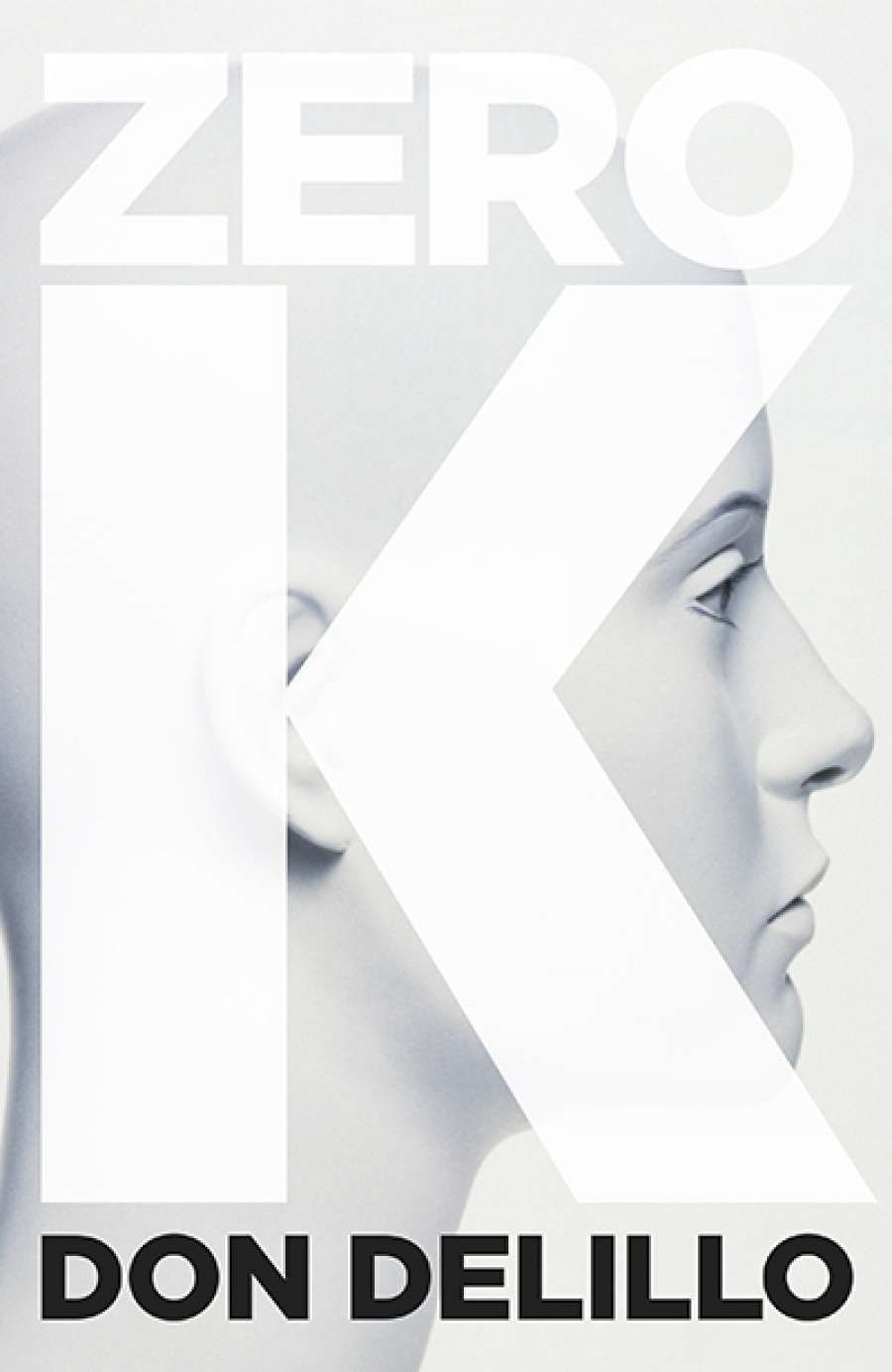
- Free Article: No
- Contents Category: Fiction
- Custom Article Title: James Ley reviews 'Zero K' by Don DeLillo
- Custom Highlight Text:
Among Don DeLillo's sixteen previous novels, White Noise (1985) is commonly held up as the apotheosis of his satirical vision, while his postwar epic Underworld ...
- Book 1 Title: Zero K
- Book 1 Biblio: Picador $29.99 pb, 272 pp, 9781509822850
DeLillo has never had much use for narrative in the humdrum cause-and-effect sense because he is a kind of visual and conceptual artist manqué. Throughout his work, there is an evident fascination with spectacle and image, with the ideological and technological abstractions of postmodern life. This fascination goes some way toward explaining the peculiarity and the patchiness of his post-Underworld fiction, which has tended to be conceptually rich but dramatically ineffectual. Slim novels such as Cosmopolis (2003) and Point Omega (2010) present themselves as highly stylised works. They flaunt their artiness, their intellectual affectations, and their gnomic contrivance. They address weighty themes with a leaden irony that can leave their fictional concepts caught, somewhat uncertainly, between profundity and preposterousness. The mannered formality of much of the dialogue in these novels is perhaps the most striking example of this odd tenor of DeLillo's late fiction. His characters often find themselves exchanging lapidary quasi-philosophical assertions in a way that is clearly not intended to be naturalistic, but does lead one to wonder on occasion if DeLillo, for all his accomplishments as a stylist, is maybe just really bad at writing dialogue.
All of this could equally be said of Zero K, which continues DeLillo's late run of hyper-real fictions that bristle with provocative ideas and correspondences, but ultimately struggle to achieve a credible sense of formal coherence. The long opening section takes place in a remote compound near Chelyabinsk in Russia, which has been built to store the cryogenically frozen bodies of the ultra-rich. The narrator, Jeffrey Lockhart, has come to visit his fantastically wealthy father, Ross, and his terminally ill stepmother, Artis, both of whom are about to enter a state of suspended animation with a view to being revived at some point in the future. The novel's thematic interest can be gleaned from this vaguely sci-fi-ish premise. The Convergence (as the compound is called) is a 'shrine of entitlement': a monument to the arrogance of these modern-day pharaohs, who not only possess the resources to isolate themselves from the everyday calamities of the world, but are privileged enough to believe that they can overcome the ultimate reality, which is death.
 Don DeLillo in New York City, 2011 (via Wikimedia Commons)
Don DeLillo in New York City, 2011 (via Wikimedia Commons)
DeLillo's concern is not exactly to satirise this hubris. He treats it at least semi-seriously in order to imply that technology, art, and religion are three manifestations of the same human impulse to fashion reality after one's own designs. The Convergence is portrayed as a vaguely disquieting art project: the smoothly futuristic building is a windowless enclosure, in which Jeffrey begins to lose his sense of time; it is adorned with mannequin-like sculptures that seem to mock the immobilised bodies it has been built to house; video screens play disturbing images of violence and catastrophe from the safely excluded outside world. The small hermetic community that lives within the Convergence is also depicted as overtly cult-like, fervent in its belief in the transcendent power of technology. One guy even gets around in a monk's cowl.
The plot of Zero K is slight, almost cursory. After a short dividing section that is reminiscent of the mid-period Beckett of How It Is (1961), in which DeLillo records the fragmentary and disembodied thoughts of the cryogenically suspended Artis (whose name is, pointedly, one letter short of 'artist'), the novel's second half returns Jeffrey to his domestic existence in New York, as a kind of marked contrast to the rarefied and unworldly environment of the Convergence. Zero K is, in this sense, the kind of novel that hangs together, rather than unfolding. Yet it comes to seem a little creaky at times, not so much because little happens in a dramatic sense, or even because of the contrived nature of some of its philosophical exchanges, but because its scattered intellectual energies. Many interesting ideas are fired like arrows into the air, but quite a few of them never land anywhere. The distinctive quality of the novel comes to be defined by the felt distance between the constrained action and the sometimes grandiose notions that are explicitly evoked. 'Sometimes history is single lives in momentary touch,' DeLillo has one character observe, '... a man with a gun walks out of a crowd toward the leader of a major nation and nothing is ever quite the same.' This is true, but such moments are rare, and nothing like that happens in Zero K.


Comments powered by CComment